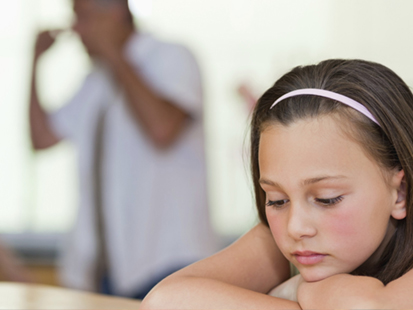By: Terry A Rifkin L.C.S.W.
Divorce is a taxing experience for an adult so one can just imagine the impact that it can have on the life of a child. Even for an adult it is normal to harbor overwhelming feelings of confusion, anger, sadness, instability and fear but these feelings are amplified in children who feel quite helpless and don’t know how to remedy the situation. With the instances of divorce on the rise around the world one in every two children comes from a divorced family. When parents fight, separate and eventually get a divorce they often neglect to realize the angst and hurt that their children go through in the process. While parents may experience pain or relief after the divorce children just experience a deep sense of insecurity and instability. Add to this the fact that very often parents are so involved in the divorce proceedings they may just neglect the emotional needs of the child in this extremely difficult situation.
Some parents are so emotionally distraught that they may turn to their children for support which can prove to be very detrimental in the long run. It is imperative that the parents take some time out to explain the situation to their children. It is not unusual for a frightened and insecure child to misconstrue the happenings around him. In several cases it has been seen that children tend to blame themselves for the divorce while some children may take drastic actions to try and save their parent’s marriage. Many cases have been reported where children have run away from their homes or inflicted physical harm on themselves in the hopes of bringing about reconciliation between their parents.
Children of divorce often exhibit a marked vulnerability towards both physical and psychological issues and substance abuse. It is important to pay special attention to your child’s behavior and needs if you are going through a divorce, while some children may be vocal about their emotions most of them will clamp down which can be very harmful. Here are a few steps that you can take to help your child cope with divorce.
Discuss the issue with your child; children are as much a part of a marriage as the spouses so they have the right to know what is happening around them. Discuss the issue with them as positively as you can you. As a parent you need to be particularly careful while doing this because you don’t want the child to develop any kind of resentment towards the other parent. So don’t discuss the intricacies like instances of cheating or how bad your spouse has been to you. Disparaging remarks about a child’s parent only leaves an indelible scar on them. It is self-centered and unfair for a parent to make their adult problems a child’s burden.
It is important for you to make the child feel that even though there will be a physical change in the family unit after the divorce he/ she can still continue to have a healthy relationship with both the parents.
Reassurance and guidance is crucial in this period. Children need to know that the divorce is not their fault and that both parents love them very much. Your child needs to feel that they can have access to both parents. All studies show that the better the relations between the divorcing spouses, and the freer the children are to go house to house after a divorce, that children do better during all stages of their lives. Children are remarkably perceptive and sensitive to the minutest of emotions. So you will have to learn to camouflage dissention between the families and manage distress and anguish in constructive ways for the child’s benefit. Spend as much time as you can with your children
It is okay to cry in front of your children. You can let them know that it is okay to be sad, but reassure them that they are very loved and everything is going to be okay. This gives the child the permission to feel sad as well. These are natural feelings and when expressed, a healthier resolution of the grief and comfort from a parent can be offered. It is important to encourage your children to express their emotions about the situation. Acknowledge your child’s feelings listen to them carefully. In many circumstances a parent may feel that he /she is unable to handle the child’s emotions; in which case you may want to seek the help of a family therapist.
Terry is an author and highly sought out expert on eating disorders, depression and anxiety. She frequently speaks to special groups and businesses in the Southern California area and can be followed on her blog at this link.






